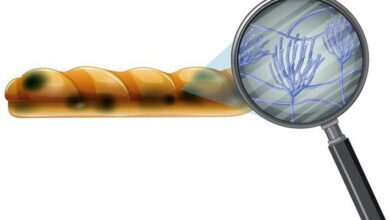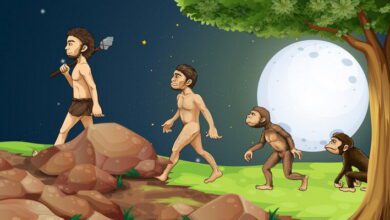Evidence of Evolution MCQs with Answers

Welcome to the Evidence of Evolution MCQs with Answers. In this post, we have shared Evidence of Evolution Online Test for different competitive exams. Find practice Evidence of Evolution Practice Questions with answers in Biology Tests exams here. Each question offers a chance to enhance your knowledge regarding Evidence of Evolution.
| Indeed, evidence of evolution clearly and strongly supports the theory that species do evolve with time through such processes as natural selection and genetic variation. Such evidence comes from different scientific disciplines ranging from paleontology to comparative anatomy, molecular biology, and embryology. Perhaps the most valuable of all fossil records tells the history of evolution itself. The fossil records have described this history of life on earth, together with some transitional forms that indicate how these changes have taken place because of evolution. For instance, fossil records show how the vertebrates came from aquatic to terrestrial setting-from fish to amphibians. Comparative anatomy supports the theory of evolution by studying the similarities and differences in between different anatomy structures that might exist among species. The forelimbs of vertebrates functionally are examples of homologous structures, sharing common ancestry, though the body parts work differently; insect wings and bird wings are analogous structures. Different species ended up with similar adaptations independently as shown in these examples. Another differing proof of molecular biology is through the studies of genetic material. DNA sequencing and protein comparison establish similarities in genetics between the species and, thereby, in a common heritage of evolution. Those genes that are conserved across organisms suggest a common ancestry and evolutionary processes among all organisms. Another window of insight is made by embryology: similar stages of embryonic development among species imply evolutionary relationships. For example, early stage embryos of vertebrates reveal similarities with common structures, relating to their evolutionary origin. In sum, this evidence, which includes fossils, anatomy, molecular biology, and embryology, composes a comprehensive framework that provides support for the theory of evolution and dynamic history of life on Earth. |
Evidence of Evolution Online Quiz
By presenting 3 options to choose from, Evidence of Evolution Quiz which cover a wide range of topics and levels of difficulty, making them adaptable to various learning objectives and preferences. You will have to read all the given answers of Evidence of Evolution Questions and Answers and click over the correct answer.
- Test Name: Evidence of Evolution MCQ Quiz Practice
- Type: Quiz Test
- Total Questions: 40
- Total Marks: 40
- Time: 40 minutes
Note: Answer of the questions will change randomly each time you start the test. Practice each quiz test at least 3 times if you want to secure High Marks. Once you are finished, click the View Results button. If any answer looks wrong to you in Quizzes. simply click on question and comment below that question. so that we can update the answer in the quiz section.
Download Certificate of Quiz Evidence of Evolution
On the end of Quiz, you can download the certificate of the quiz if you got more than 70% marks. Add a certificate to your job application or social profile (like LinkedIn) and get more job offers.
Download Evidence of Evolution MCQs with Answers Free PDF
You can also download 100 Evidence of Evolution Questions with Answers free PDF from the link provided below. To Download file in PDF click on the arrow sign at the top right corner.
If you are interested to enhance your knowledge regarding English, Physics, Chemistry, Computer, and Biology please click on the link of each category, you will be redirected to dedicated website for each category.




